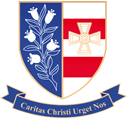Why study English Literature at A Level?
The study of Literature is a study into the human mind, human experience and social influences over the years. Any text is the product of its time: a study of it will teach you to read it in context and to understand the influences over the author, as well as to empathise with characters and emotions you may never encounter in reality.
No other subject enables you to experience the lives of an elderly and increasingly mad king, a failing American salesman and a jailed prisoner in the 1890s, all through the pages of prose, poetry and drama texts. In addition, you will look at literary texts in a whole different way through the application of critical lenses such as Feminism, Marxism and Postcolonialism.
| Key Documents | ||
| Knowledge Organisers | Progression Model | Assessment Map |
| Specification |
Course Content
You will study AQA English Literature Specification B, which is examined via two examination papers (Aspects of Tragedy and Elements of Crime Writing) and two non-examination assessment pieces (one on a poetry text, one on prose, applying critical theory from a range studied in lessons). The course will be taught by two teachers from the English Department, usually with each teaching the texts for a particular exam paper.
Paper 1 (Aspects of Tragedy):
For this paper, you will study THREE texts, covering Shakespeare, a further drama text and either prose or poetry. One of the latter texts must have been written pre-1900.
Shakespeare
King Lear – the tragic story of an ageing king, whose decision to divide his kingdom between his three daughters has terrible and fatal consequences.
Drama
Arthur Miller: Death of Salesman – a play dramatising the futile attempts of the titular salesman, Willy Loman, to achieve the elusive American dream.
OR
William Shakespeare: Richard II – One of Shakespeare’s History plays, it is based on the life of King Richard II of England and chronicles his downfall and the scheming of his nobles.
Further text
AQA Poetry Anthology: Tragedy – a collection of poems which explore various aspects of the tragic genre, including poems by Chaucer, Milton and Yeats.
OR
Thomas Hardy: Tess of the D’Urbervilles – a pre-1900 novel in which the eponymous heroine faces numerous challenges when trying to make her way in a seemingly uncaring universe.
Paper 2 (Texts and Genres – Elements of Crime Writing):
For this paper you will study THREE texts: one post-2000 prose text, one poetry and one further text, one of which must be written pre-1900
Post-2000 Prose
Ian McEwan: Atonement – a novel about how someone’s mistaken perception of an event can have devastating and lasting consequences for others.
Poetry
AQA Anthology: Crime Poetry – a collection of pre-1900 poems dealing with crimes of passion, cruelty and obsession.
Further text
Agatha Christie: The Murder of Roger Ackroyd – a classic novel from the Golden Age of detective fiction, in which Hercule Poirot is tasked with solving one of his most puzzling cases.
OR
Graham Greene: Brighton Rock – a murder thriller set in 1930s Brighton, dealing with universal themes of morality, religion and good versus evil.
OR
William Shakespeare: Hamlet – the classic play about murder, indecision and revenge.
In addition, you will study a range of unseen texts about crime: moral, social, religious, as well as how writers present the consequences and potential rewards of a criminal life.
Non-Examination Assessment:
You will study the AQA Critical Anthology, which is a collection of critical ideas, including Marxism, Feminism, Postcolonialism and Value in Literature, applying them to a range of extracts from literary texts. You will then write TWO pieces, each of 1250-1500 words, one on a poetry text and one on a prose text, applying two different critical lenses. One of the texts will usually be taught in class; the other will be self-selected, with guidance from your teacher.
As a department, we believe that enrichment activities are an important part of your studies of English Literature and will endeavour to provide you with opportunities to attend theatre productions, external workshops or lectures or visits to sites of literary significance as part of the course.
Who should I speak to for more information?
Mrs S. O’Connor, Curriculum Lead in English so’connor@stjosephs.uk.net
Mrs E. McEwen, KS5 Assessment Coordinator in English mcewene@stjosephs.uk.net


